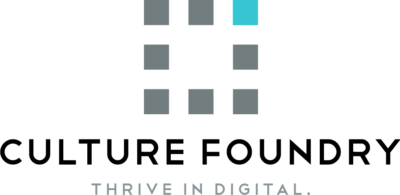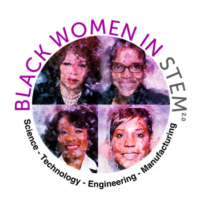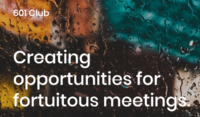 I’m excited for this opportunity to speak with Mikaela Kiner, founder and CEO of Seattle-based people operations consultancy Reverb. In anticipation of next week’s event, Mikaela has stopped by to talk about her upcoming book, Female Firebrands: Stories and Techniques to Ignite Change, Take Control, and Succeed in the Workplace.
I’m excited for this opportunity to speak with Mikaela Kiner, founder and CEO of Seattle-based people operations consultancy Reverb. In anticipation of next week’s event, Mikaela has stopped by to talk about her upcoming book, Female Firebrands: Stories and Techniques to Ignite Change, Take Control, and Succeed in the Workplace.
Welcome, Mikaela! What do you hope to share with attendees and what would you like them to leave with?
I’ve spent most of my career in tech – although I am a non-tech person – I grew up doing HR in technology companies, mostly Microsoft and Amazon. I’m going to be talking about Female Firebrands, a book that I wrote based on interviews with 13 amazing women. About two-thirds of them also come from tech, and it’s about the true stories of what goes on for professional women at work. I want to share the challenges and obstacles, as well as how these women have overcome these challenges.
But I also want to talk about the role of the male advocate. The change that needs to happen can’t happen without the inclusion of men. That can be challenging or difficult for men to enter these conversations. They don’t know if they can and should be part of the conversation, so I want to encourage our male allies as well.
What are some things men can do to engage in those conversations and become advocates?
First is knowing that they’re welcome. Or if they’re uncertain, ask! If it looks like a women’s event or a talk on women’s leadership, it may not be obvious that men are, of course, welcome. So ask. But most importantly, simply saying the words, “I’m an advocate.” That assurance that they’re on your side is so important to us.
And don’t feel like you must be perfect. Any conversations about gender or diversity or inclusion are inherently messy and none of us are perfect in those conversations. I would say take the risk and if you put your foot in your mouth, just apologize, be accountable and move on. Hopefully everyone else involved has the grace to do the same.
For your book, how did you identify the 13 women you profiled?
I started thinking about women I admire and women who are successful. Not just from a business standpoint, but that they’re also well rounded, mission driven, collaborative. The kind of people that help others. Before I even wrote down any criteria, I had a list of 25 people I wanted to interview. So it was more about narrowing down the list. I could easily write part two and pick 15 more women.
What advice are you hoping to leave our community with that they can take to their companies and beyond?
At work we may hear or witness things that are not appropriate or are uncomfortable. What I’ve learned from talking with others is that a common reflex is that we tend to freeze in those situations. They tend to freeze in the moment but 10 minutes later wish they had spoken up for ourselves. We’re familiar with “fight or flight” but there’s also “fight, flight or freeze.”
One of the tips I’d really like to leave people with is that you can and should speak up for yourself. There are ways to do that are not adversarial, that are not about shaming or blaming, and that can be really constructive. It just takes the intention, some planning ahead and a little bit of practice in order to do that.
I really hope people will take the checklist. Even if you don’t read the book, every chapter ends with a checklist. And we’ve got those checklists on the website as well. Whether you’re male or female, there’s a checklist for everyone. For example, we have a guide that will show you different tools who can support you in rooting bias out of the hiring process.
So there are tools anyone can use, even if they’re not in HR or business leaders?
Yes, absolutely! Hopefully your organization is already working on some things and this can help you influence them. But I really wrote the book for individuals. My goal was to put tools in people’s hands so the person who experiences or witnesses certain things at work. For example, getting talked over in a meeting. The book is really written for you to understand what you can do for yourself in this situation or what you can do to help others in the room if it’s happening to them.
This sounds like an amazing book. When will it be available for purchase?
Yes, it comes out on January 7 and right now it is on pre-order.
Fantastic. I can’t wait to read it! Thanks so much for your time today, Mikaela. I look forward to continuing our conversation next week and hearing from you at our Diversity & Women in Tech event at 5:30 p.m. next Thursday, Dec. 12 at Galvanize (111 S. Jackson St., Seattle, WA 98104).
Tickets are still available and Mikaela will be signing books afterwards. Click here to RSVP for next week’s event!























